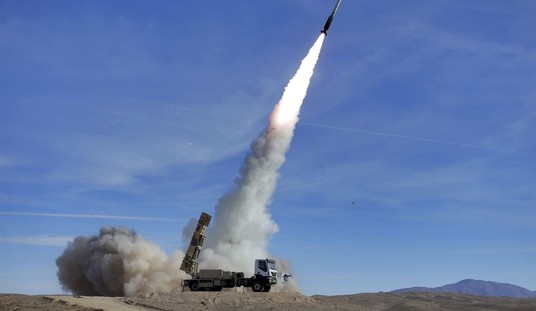For the second time since Russia’s offensive against Ukraine began, NSA leaker Edward Snowden has taken aim at the United States from Russian soil. The first occurred when he addressed SXSW via web video from an undisclosed location within Russia, where he has been granted asylum. That chat signaled to the world that President Obama and the United States are impotent to stop Snowden, and strongly suggested that Putin is controlling him. The latest disclosure, reported by the Washington Post, is about to cause a massive diplomatic headache for the United States.
The National Security Agency has built a surveillance system capable of recording “100 percent” of a foreign country’s telephone calls, enabling the agency to rewind and review conversations as long as a month after they take place, according to people with direct knowledge of the effort and documents supplied by former contractor Edward Snowden.
A senior manager for the program compares it to a time machine — one that can replay the voices from any call without requiring that a person be identified in advance for surveillance.
The voice interception program, called MYSTIC, began in 2009. Its RETRO tool, short for “retrospective retrieval,” and related projects reached full capacity against the first target nation in 2011. Planning documents two years later anticipated similar operations elsewhere.
In the initial deployment, collection systems are recording “every single” conversation nationwide, storing billions of them in a 30-day rolling buffer that clears the oldest calls as new ones arrive, according to a classified summary.
The call buffer opens a door “into the past,” the summary says, enabling users to “retrieve audio of interest that was not tasked at the time of the original call.” Analysts listen to only a fraction of 1 percent of the calls, but the absolute numbers are high. Each month, they send millions of voice clippings, or “cuts,” for processing and long-term storage.
At the request of U.S. officials, The Washington Post is withholding details that could be used to identify the country where the system is being employed or other countries where its use was envisioned.
The most likely targets are North Korea and Iran. Both are dangerous enemies bent on developing nuclear arsenals, and both are determined to cause havoc and destroy U.S. allies if not the U.S. itself. However, both North Korea and Iran are capable of surprising us with nuclear tests, missile launches and the like, so they may not be the targets, at least not yet. NSA might have developed the technology by targeting a much smaller and less governed country, say Yemen, with an eye to replicating it on a larger scale once the technology was sufficient. The U.S. does seem to find high numbers of terrorists to drone in Yemen.
Snowden will disclose which country was targeted soon enough, and if it was a terrorist haven such as Yemen, expect that country to break off cooperation with us while the rest of the world condemns the development of the technology itself. Snowden already disclosed U.S. eavesdropping on foreign allied leaders. They will want to know that their whole countries have not been targeted and will not be targeted for blanket phone call recording.
The disclosure itself paints the U.S. as the global villains, at a time when Russian President Vladimir Putin has seized and annexed Crimea, which was Ukrainian territory just last month. At a time when the U.S. needs to be able to rally allies, Snowden has given our allies reasons to be suspicious of American intentions and capabilities. At a time when Barack Obama needs to be seen as a credible leader, Snowden’s disclosure reveals him once again to be a liar: Obama promised after an earlier disclosure that the U.S. is not spying on ordinary people who pose no threat to the U.S. Oops, yes we are, because we are recording all phone calls placed within an entire country.
Snowden is dropping these disclosures from Russian soil, at times of his or someone else’s choosing, when it most benefits Russia for America to become suspect or isolated.
Exit question: Is it time to regard Edward Snowden as a Russian intelligence agent, or is it past time to regard him as a Russian intelligence agent?









Join the conversation as a VIP Member